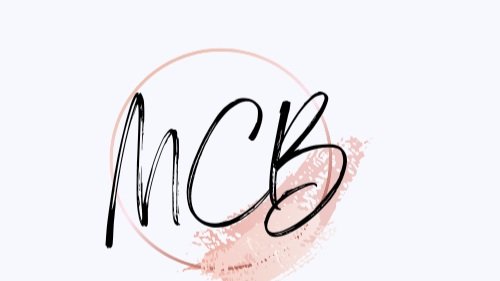
Michelle Courtney Berry's latest research offers groundbreaking insights and solutions that promise to transform the modern workplace.
Today’s Complex Workplace
-
The Pitch for Michelle Courtney Berry
In today's fast-paced business world, toxic workplace environments have emerged as a pervasive issue, significantly impacting employee well-being and organizational culture. Noxious environments cost us morally and financially (in the U.S., it is a $360 million loss; internationally, it is over a trillion dollars annually). A recent comprehensive study led by Michelle Courtney Berry sheds light on the detrimental effects of noxious workplaces and the pivotal role of leadership in either exacerbating or alleviating these conditions.
Michelle’s findings reveal a strong demand for ethical and transparent leadership to counteract workplace toxicity, highlighting leaders' profound influence in shaping a positive or hostile work environment.
As a best-selling author, the founder and CEO of Courtney Consulting, America Rises, and the 'Workplace Doc™ Initiative,' Michelle Courtney Berry has developed a unique approach that combines her doctoral research and scholarship with practical solutions to diagnose and remedy issues in toxic workplace environments. This initiative moves beyond symptoms and instead targets the root causes of workplace toxicity, prioritizing employee health and well-being through leadership development and systemic policy reforms.
We believe this story is timely and crucial, offering valuable insights and solutions to a global audience facing these challenges. Michelle Courtney Berry's expertise, backed by her extensive research and successful business track record, presents a compelling narrative on the urgent need for organizational change. We are eager to share how the 'Workplace Doc™ Initiative' is making strides in transforming toxic workplaces worldwide and fostering healthier, more productive, and inclusive environments.
Given these factors, Michelle’s niche in addressing and improving workplace wellness through a blend of academic insight and practical application is unique and highly relevant in today's market. It offers impactful solutions to enhance personal and organizational health and leadership effectiveness. Overall, it is our hope that businesses and organizations can create healthier, more productive, and less toxic workplaces by implementing such initiatives.
-
Michelle Courtney Berry, "The Workplace Doc™"
In an era where toxic workplace cultures are increasingly scrutinized, Michelle Courtney Berry's latest research offers groundbreaking insights and solutions that promise to transform the modern workplace. As a best-selling author, award-winning researcher, and seasoned keynote speaker, Berry's work delves deep into the pervasive issue of toxic leadership and its detrimental effects on employee well-being and organizational health.
Her comprehensive study, highlighted in the "Workplace Coping Mechanisms and Leadership Styles Survey," reveals leadership's critical role in exacerbating or alleviating toxic workplace environments. Berry's research identifies workplace toxicity's manifest symptoms and underlying causes and proposes actionable strategies for fostering a culture of inclusivity, respect, and well-being.
Preferred Leadership Styles to Interrupt Toxic Work Cultures
Michelle Courtney Berry's research highlights that employees overwhelmingly prefer Authentic Leadership (28.75%) and Transformational Leadership (26.25%) to counteract toxic work environments. Authentic leaders emphasize ethical and transparent behavior, fostering trust and open communication. Transformational leaders inspire and motivate employees towards shared goals, creating a positive and inclusive workplace culture. These leadership styles are seen as effective antidotes to toxicity, promoting mental health and well-being by modeling non-toxic behaviors and supporting open feedback loops.
Employee Coping Mechanisms in Toxic Workplaces
Berry's survey reveals that employees primarily rely on external support networks, such as friends and family (55%), to cope with workplace toxicity. Other common coping mechanisms include seeking support from colleagues (46.88%) and engaging in hobbies and interests outside of work (44.38%). These strategies highlight the need for robust support systems both within and outside the workplace. The data underscores the importance of creating a supportive work environment where employees feel safe to voice concerns and seek help without fear of retaliation.
Berry’s insights are timely and essential for leaders, HR professionals, practitioners, and employees seeking to create healthier, more productive work environments.
-
The Moral and Financial Costs of Toxic Work (#toxicmetoo)
Michelle Courtney Berry has a compelling case for launching a #toxicmetoo campaign to address the pervasive issue of toxic workplace cultures. Her research has uncovered several key points that could fuel such a movement:
Toxic Workplace Cultures are Widespread
Michelle's survey results show that over half of employees have encountered toxicity in their workplace. This is a major issue affecting many companies and employees.
Toxic Leadership is Harming Employees and Organizations
Michelle's research has found that toxic leadership practices like bullying, harassment, and unethical behavior are harming employees and organizations. Toxic leadership leads to lower engagement, higher turnover, and poorer organizational performance. This is a major issue that needs to be addressed.
Employees Lack Effective Coping Mechanisms
The survey indicates a heavy reliance on external support networks and hobbies to cope with workplace toxicity, suggesting a need for more effective strategies to address the root causes.
Desire for Ethical, Transparent Leadership
Both the literature and survey findings highlight the effectiveness of Authentic and Transformational Leadership styles in counteracting toxicity, underscoring the urgent need for ethical, transparent leadership that prioritizes employee well-being.
By highlighting the pervasiveness of toxic workplaces, the detrimental impacts of toxic leadership, the lack of effective coping mechanisms, and the desire for ethical leadership, Michelle Courtney Berry's #toxicmetoo campaign could resonate widely, sparking a national and international movement to eliminate toxic work environments within a generation.
